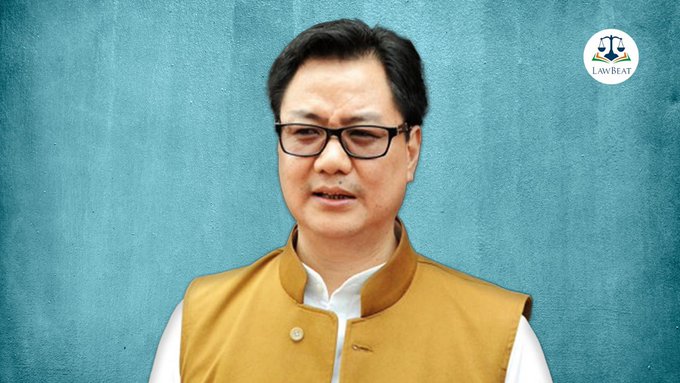Govt Doesn’t Intervene in Functioning of Judiciary: Law Minister Kiren Rijiju on Monitoring Judicial Entities' Objectionable Remarks

Law Minister tabled his reply before the Rajya Sabha on Thursday answering the question put up by Member of Parliament Anil Desai
The Union Minister for Law & Justice Kiren Rijiju on Thursday reassured the Rajya Sabha that the Government of India is committed to the independence of the Judiciary and stated that accountability in the higher judiciary is maintained through an “in-house mechanism”.
In reply to a four-part question put up by Anil Desai, Member of Parliament, as to whether in view of some objectionable/uncalled for remarks pronounced by judicial entities, there is any demand or need felt to develop a mechanism to keep a watch or monitor such incidents, Minister of Law and Justice replied:
"Court proceedings and the issues like decisions pronounced by judges, including in respect of grant of bail, remission etc. are within the domain of the judiciary and the Government has no role in these issues.....Judiciary being an independent organ under the Indian Constitution,is capable of handling its internal matters."
Desai had raised three more queries before the Minister of Law and Justice:
- Whether there is any system in higher courts to keep a watch on the quality of decisions pronounced by judges in respect of grant of bail, remission etc.;
- Whether higher courts ever found any violation of procedure or law by any judicial officer; and
- If so, types of action or views that are normally considered/awarded to the concerned Judicial Officers, details thereof, if not, the reason therefor?
To these, the Law minister placed his reply which, in addition to the abovesaid, stated:
The Supreme Court of India, in its full Court meeting on 7th May 1997, adopted two Resolutions namely (i) “The Restatement of Values of Judicial Life ” which lays down certain judicial standards and principles to be observed and followed by the Judges of the Supreme Court and High Courts (ii) “In-House Procedure” for taking suitable remedial measure against Judges who do not follow the universally accepted values of judicial life including those included in the Restatement of Values of Judicial Life.
As per the established “in-house mechanism” for the higher judiciary, the Chief Justice of India is competent to receive complaints against the conduct of Judges of the Supreme Court and the Chief Justices of the High Courts.
Similarly, the Chief Justices of the High Courts are competent to receive complaints against the conduct of High Court Judges. The complaints/representations received are forwarded to the Chief Justice of India or to the Chief Justice of the High Court concerned, as the case may be, for appropriate action.
As per Article 235 of the Constitution of India, administrative control over the members of the subordinate judiciary in the States vests with the concerned High Court.
